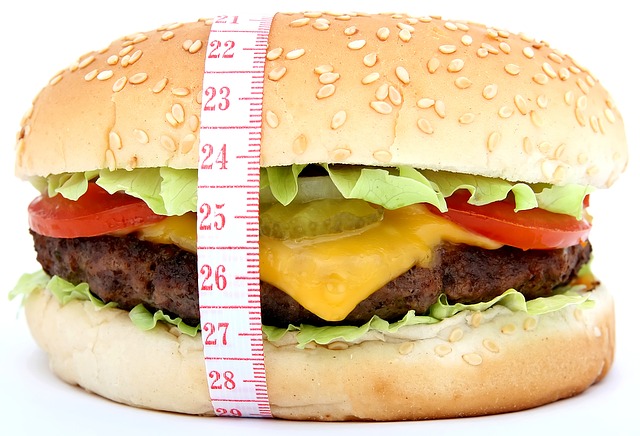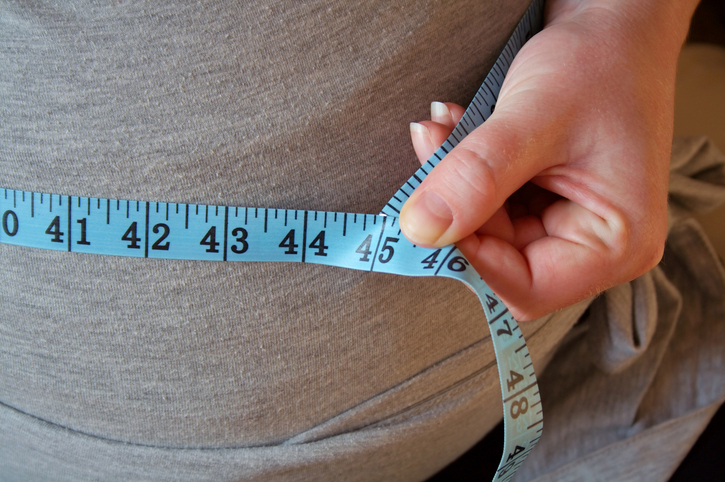Do you have a weight gain problem? Know the causes

Weight gain is a problem that can be caused by an improper lifestyle. Often the problem is a genetic predisposition. In some cases, the cause must be sought in a disease. During pregnancy, some weight gain is desirable.
In general, overweight and weight gain in healthy people can be caused by an incorrect lifestyle. Mainly because they have excessive food intake, lack of exercise, a sedentary lifestyle and in some cases, increased stress levels.
There are three main factors involved in weight gain, namely:
- genetic predisposition
- increased energy intake
- reduced energy expenditure
If there is an increased calorie intake and reduced physical activity, fat stores are stored in the body and the person gains weight. Sometimes the reduction in physical activity can also be caused by objective factors, for example if a person has restricted movement due to injury or convalescence.

On the other hand, the quality of the diet a person eats also has an impact on weight gain. Unhealthy diets make people fatter. In this case, adjusting the diet in relation to energy expenditure is obviously necessary.
At the same time, weight gain is a typical symptom of several diseases, mainly eating disorders. But other causes, such as hormones, can also be the reason for weight gain.
The following non-emotional conditions may be involved in weight gain:
- unbalanced diet, vitamin and mineral deficiencies
- inappropriate diet, the body compensates for the lack of nutrients by storing reserves
- certain medications such as antidepressants, steroids, antihistamines
- hormonal contraceptives
- menopause
- lack of sleep
Disease causes of weight gain

The most common cause of weight gain is obesity, which is a nutritional disorder. It is a disease of civilization that affects more and more of society today. In obesity, there is excessive storage and accumulation of fat in the body.
It is influenced by the resting metabolism of the individual, but also by age, gender, genetic predispositions and also hormonal changes. But the most important thing is movement and lack of exercise associated with excess diet.
Weight gain is also present in metabolic disorders and diseases, such as metabolic syndrome, which affects almost a third of the population. Metabolic syndrome is the name given to the combination of type 2 diabetes, high blood pressure and obesity.
The disease adversely affects the blood vessels, the heart, because it aggravates atherosclerosis. A person suffering from this syndrome typically has elevated blood sugar, high cholesterol and blood pressure. Overweight is also present.
For example, hormone levels and metabolism, which is different for each person, also have an effect on weight gain and weight gain. Sometimes digestive diseases can also be behind weight gain.
An example of weight gain is an ulcer on the duodenum. Pain is present when fasting, which forces a person to constantly take in food. This is to avoid pain.
Often, weight gain also occurs in people with diabetes. It is aggravated by lack of exercise and an unhealthy lifestyle. Often, the cause is non-compliance with diet and diabetes treatment. In the treatment of diabetes, insulin, pills or diet is used.
As mentioned, even hormonal fluctuations and increased levels of certain hormones in the body can cause weight gain and weight gain. It is present in women who take hormonal contraceptives, but this is also very individual.
It is possible to think of polycystic ovary syndrome if the weight gain is associated with a disorder of the menstrual cycle or infertility. In addition, increased body hair can be observed. Often diabetes, high blood pressure are associated.
Problems also arise in hypothyroidism, which is a disease of the thyroid gland. In hypothyroidism, there is insufficient production of hormones. As a result, the whole organism slows down, metabolism and intestinal peristalsis also slow down, and the person gains weight.
In hypothyroidism other symptoms can be observed, namely drowsiness, dry skin, anaemia. In men it can cause impotence and in women infertility. Overproduction of adrenal hormones can also be involved in weight gain.
Sleep apnoea is sometimes caused by weight gain. The disease causes breathing to stop for a short period of time during sleep. This stoppage may also be related to anatomical changes in the neck, even due to increased body weight.

Some other morbid causes of weight gain:
- Cushing's syndrome
- kidney failure, watch out for rapid weight gain and body swelling
- heart disease
- liver failure
- Alcoholism
Lack of exercise leads to excess weight when energy intake exceeds energy expenditure. This is also the case with musculoskeletal disorders. In addition to the aforementioned injuries, arthritis, spinal or muscular disorders can occur.
Poor psychological state, depression and other psychiatric disorders can cause weight gain. Long-term stress, high workload, but also lack of sleep have an impact on body weight in some people.
Weight gain during pregnancy
Gaining weight during this period is natural. The fetus itself weighs approximately 3-4 kilograms. The placenta, the amniotic sac, the amniotic fluid, the increased amount of blood, the enlarged mammary glands and, of course, the fatty tissue also add weight.

How many extra kilos are normal during pregnancy?
It is stated that one should gain a minimum of 7 kilograms of body weight. It is quite normal to gain around 10-16 kilograms.
The increased energy requirement also requires a higher dietary intake. Obviously, dieting, especially reduction dieting, is inappropriate during this period. Neither obesity nor malnutrition is good during pregnancy.
With malnutrition, the fetus is also at risk of nutrient deficiencies. There is often a problem with getting pregnant or maintaining the pregnancy itself. With obesity, there is a risk of diabetes, high blood pressure, and therefore pre-eclampsia.
The table shows the distribution of approximate weight gain before the end of pregnancy
| Name | Approximate weight |
| Fetus | 3-4 kg |
| Uterus | 1-1,5 kg |
| Fetal packaging and water | 1,5 kg |
| Increased blood volume | 1,5 kg |
| Increase in mammary glands | 0.5 kg |
| Water retention in the body | 2 kg |
| Body fat gain | 2-3 kg |
Diseases with symptom "Gaining weight"
Herbs used forGaining weight
Interesting resources
Related










